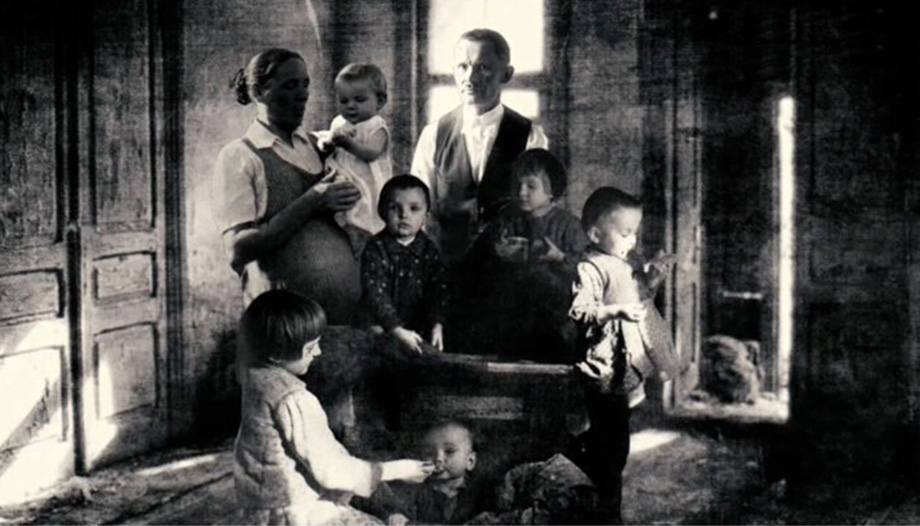The facts are well known: during the Second World War, all members of the Ulma family were killed for hiding Jewish families in their possessions. The eldest son was eight years old and the youngest one and a half years old. The mother was expecting a son who was already seven months old.
Together with them, eight Jews from the Szall and Goldman families were murdered, including the latter's little daughter. In the letter published before this beatification, the Polish bishops emphasize that the Ulma family "is an inspiration for modern marriages and families. Their heroic attitude is a testimony that love is stronger than death," reads the letter of the episcopate.
Martyrs
The heroic act of the Ulma family was recognized by the Catholic Church as a martyrdom for the faith. It is logical to ask: Why martyrs? The motivation for this martyrdom is clear and eloquent: a manifestation of the Christian faith is the loving defense of the life of one's neighbor. In this case there were no doubts at all, everything was made easier thanks to the innovative decision of St. John Paul II on the canonization of Maximilian Kolbe. It was then that the Polish Pope affirmed that in order to recognize someone as a saint it is enough to demonstrate that the candidate for sainthood gave his life for another person.
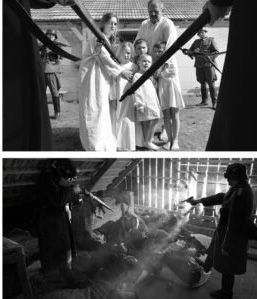

The beatification of Maximilian Maria KolbeThe canonization process, carried out by St. Paul VI in 1971, for various reasons, including political ones, was as a defender of the faith, not as a martyr. John Paul II broke with tradition and decided that giving one's life for a man in the Auschwitz camp was sufficient reason for canonization as a martyr, without requiring the process of a new miracle. This gesture of forty years ago opened the way for all the beatifications and canonizations that take place with this extended formula, that is, to give one's life for another man, as a consequence of the Christian faith lived is an act of witness of faith, it is to be a martyr.
"In preparing for the beatification ceremony, we want to contemplate his holiness and draw from it an example for contemporary marriages and families. It will be an unprecedented beatification, because for the first time the whole family will be elevated to the altars and for the first time an unborn child will be beatified," the bishops wrote.
The bishops emphasized that Józef and Wiktoria Ulma show the beauty and value of marriage based on Christ. "Their love, realized in everyday life, can also motivate them to open themselves to life and take responsibility for the education of the young generation. The heroic attitude of love for one's neighbor should impel us to live not so much for our own comfort or the desire to possess, but to live as a gift of ourselves to others.
"As we await beatification, let us look at the example of an extraordinary family who achieved sainthood in ordinary life circumstances. It is an inspiration for contemporary marriages and families."
Extraordinary holiness in the ordinariness of life
"You must decide to be a saint! Saints must be brought down from the clouds and become a normal, everyday ideal for believers." (Rev. F. Blachnicki. Letters to the Prisoner, Krościenko 1990, pp. 15-16).
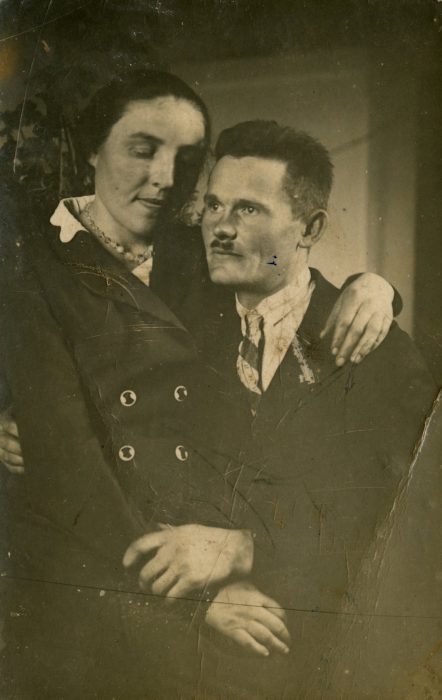

The family of Józef and Wiktoria Ulma lived at the beginning of the 20th century in Markowa, Podkarpacie. They had seven children. As head of the family, Józef combined caring for his loved ones with hard work on the farm. At the same time, he was open to development and knowledge. Despite the effort he put into running the farm, he was able to find time to enjoy his passion for photography, beekeeping, silkworm breeding, bookbinding and horticulture. He built himself a camera and a windmill, which he used to generate electricity.
Józef's passion for photography was used to record not only the lives of his loved ones, but also local events, churches and family celebrations. He also took commissioned photos, portraits for documents, thanks to which he became known throughout the area. She inspired others not only with her knowledge and skills, but also with her constant willingness to help and give advice.
Wiktoria Ulma, née Niemczak, was an exemplary wife and mother, caring with great care and love for the good Catholic education of her children. She came from a home where the principle was that no man who asked for help could be refused. She was always a support for her husband, and at the transcendent moment, when they had to decide to take in the Jews threatened with death, she gave testimony of her love for others. She tried to introduce a kind and friendly atmosphere in the home, emphasizing that the family should be based on mutual respect, kindness and devotion.
Józef and Wiktoria were married on July 7, 1935 in the local church. Soon the family began to grow. Stasia, Basia, Władzio, Franuś, Antoś and Marysia were born, and at the time of his tragic death, Wiktoria was in a state of bliss with another son.
The Ulma family treated their marriage as a community of people who trust, love and strive for holiness through the faithful performance of their daily duties. In their lives, the essence of the sacrament of marriage was realized, in which Christ himself "Abides with them, gives them the strength to follow him by taking up their cross, to rise after their falls, to forgive one another, to bear one another's burdens." (Catechism of the Catholic Church, 1642).
Their human love was purified by the grace of the sacrament of marriage, brought to fullness, and by the power of the Holy Spirit permeated their lives with faith, hope and love.
The daily life of their marriage was based on real and concrete gestures through which God dwells in this diversity of gifts and encounters. They lived the promises made on their wedding day, fulfilling every day the covenant of faithful married love.
As Pope Francis stated during the audience of November 28, 2022, the family of Józef and Wiktoria Ulma must be "an example of fidelity to God and his commandments, love of neighbor and respect for human dignity."
Looking at the example of the married life of Józef and Wiktoria, it is worthwhile to perceive our homes as places where God's love is visible and personal, where it manifests itself in concrete deeds, and Christ is present in the sufferings, struggles and joys of every day. He strengthens and enlivens love, reigning with his joy and peace.
Ulma marriage, open to life
"The fundamental task of the family is to serve life" (John Paul II, Familiaris Consortio, 28).
Józef and Wiktoria discovered a vocation to a special participation in God's creative work through the lives of their seven children. Despite the difficult conditions, they did not fear adversity. They trusted in God's Providence. They believed that God, in giving life, also gives strength to fully realize the vocation to motherhood and fatherhood.
They were concerned about the good education of their children, based on gospel values. They lived a life of faith under their own roof. They transmitted a living faith to the children through the example of life and the teaching of prayer. The children learned to talk to God by watching their parents do so. In family prayer they found strength to make daily sacrifices and witness to Christ. The Ulma's taught their children to worship God both in church and at home. They introduced us to experience the Holy Mass and to practice love of neighbor.
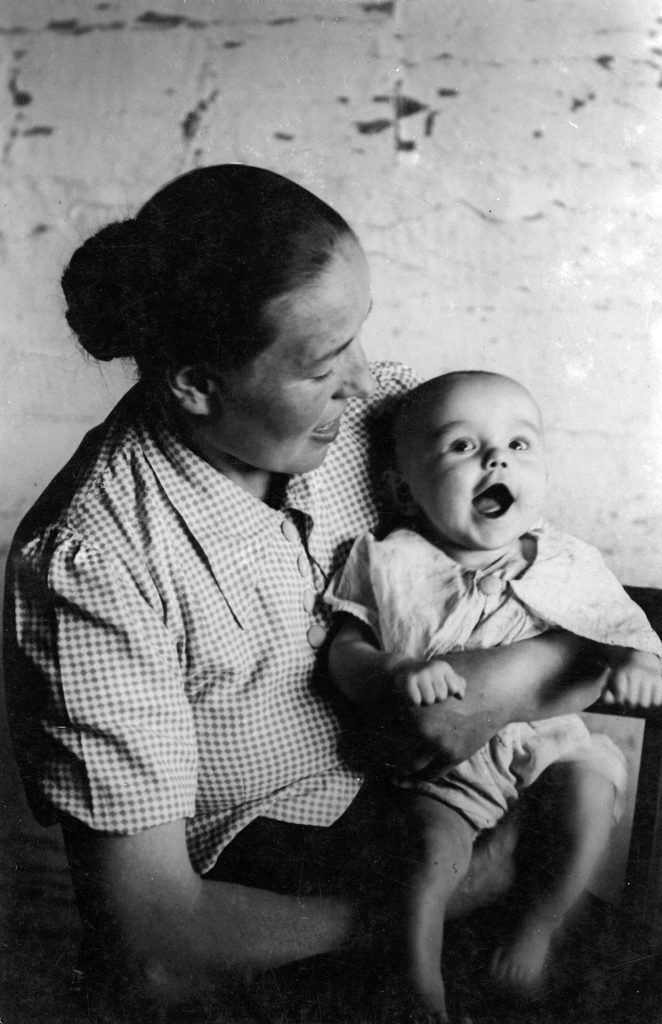

Wiktoria, as a loving mother, devoted time to her children, helping them to learn, taking care of their upbringing and education. From eyewitness accounts, we know that she taught the children housework and cleanliness in and around the home, caring for younger siblings and caring for each other. She enjoyed the loving atmosphere between siblings. He observed how they formed a community as they worked, played, walked and prayed. Józef, for his part, taught his children how to work on the farm and in the garden and answered their many questions.
Merciful love
"Love begins at home and develops at home" (Mother Teresa of Calcutta), but it does not end there. It must radiate to others.
The life of the Venerable Servants of God Józef and Wiktoria consisted of countless sacrifices and deeds of love every day. The fruit of adopting this way of life was the heroic decision to help the Jews condemned to extermination. It was not hasty, but was the result of reading the Word of God, which molded their hearts and minds and, therefore, their attitude towards their neighbor. For them, the Bible was the authentic book of life, as is confirmed by the outstanding fragments of the Gospel, especially the parable of the Good Samaritan.
The Ulmas, trying to live like Christ, implementing the commandment of love on a daily basis, were willing to give their lives for their neighbor. Józef and Wiktoria decided to take in eight Jews, despite the threat of the death penalty from the Germans for helping to hide Jews. Three families took refuge in the attic of their small house: the Goldmans, the Grünfelds and the Didners. For many months, they provided a roof over their heads and food, which was a real challenge during the war.
Their selfless attitude came to a tragic end on March 24, 1944. Then the German Nazis broke into their house, cruelly shot the Jews they were hiding and then Józef and Wiktoria were murdered in front of the children. The tragedy was the murder of children. Józef and Wiktoria Ulma, fully aware of the risk, sacrificed their lives to save Jews in need. Their heroic attitude is a testimony that love is stronger than death.
Markowa: a people of the righteous among the nations.
It is not about trying to beatify a nation, nor to expose the positive side of a large part of Polish society during the Great War. It is to prepare a beautiful ceremony of beatification of a family who sacrificed their lives to save the Jews.
The database of the Institute of Polish Memory has on file the names of some six thousand people who paid with their lives for hiding Jews during the Second World War. So the Ulma family is no exception.
The Christian-inspired role of the peasant movement in shaping the attitudes of Józef and Wiktoria should be noted (Józef was, among others, chairman of the Agricultural Education Committee of the District Youth Board of the Republic of Poland "Wici").
There is a list of people from Markowa who hid Jewish families. They were Michał and Maria Bar, Antoni and Dorota Szylar, Józef and Julia Bar, Michał and Katarzyna Cwynar, Michał and Wiktoria Drewniak. In addition to the Ulma family, about 9 families participated in the help. Thanks to this probably 21 Jews were saved in Markowa. The families who took in Jews, including children, amounted to almost 36 people.
Some described Marków as "the town of the righteous among the nations". It is better to say that it was a town where many Righteous lived. However, those who actively participated in helping the persecuted Jews did not constitute the majority of the inhabitants, because at that time the town numbered about 4,000 people, ten percent of whom were Jews. Of course, this is not surprising, because heroism is not an attribute of the majority of society. It is always the great heroes who are in the minority, which is why they are so highly esteemed.
Among the Poles there were also people who handed over Jews to the Germans, or informed on Polish families hiding Jews, or even participated in those murders. The occupier encouraged them. However, on the occasion of the Ulma's beatification, we want to remember that there were other families in Poland who, contrary to German law, helped Jews. There were many Poles who dared to help. The Ulma family is the most famous, but there were many others and thanks to this beatification the world can discover that human and Christian behavior up to heroism is not the property of a few.
What is the Ulma family telling us today?
The Ulma family is an example of a "very large phenomenon" that was the rescue of Jews by the Poles during World War II. Not tens, not hundreds, not thousands, but hundreds of thousands of people participated in this activity. 'Save the Jews' can be said to have been a motto for many Poles. This activity was systematically organized and carried out by the Polish underground state and government-in-exile. Helping Jews was officially one of the goals of the underground state.
The Ulma family and their behavior is seen today as a special ethical attitude that should be maintained in Poland. The Ulma attitude, in which today we see the greatest heroism, could have been perceived differently during the war.
At the time, many did not see it as heroism. It is necessary to know the context of prewar Polish antisemitism-both popular antisemitism and elite antisemitism-and the context of the cruel German law prohibiting aid to Jews.
The Ulma family should be a model for the world, their example must continue to be present in Poland. In pre-war Poland there were anti-Jewish attitudes, there was a real conflict of national and economic interests, but never to the point of legal discrimination as in the Third Reich. Even people with anti-Jewish attitudes before the war, like Zofia Kossak-Szczucka, asked for help to the Jews persecuted by the Germans.
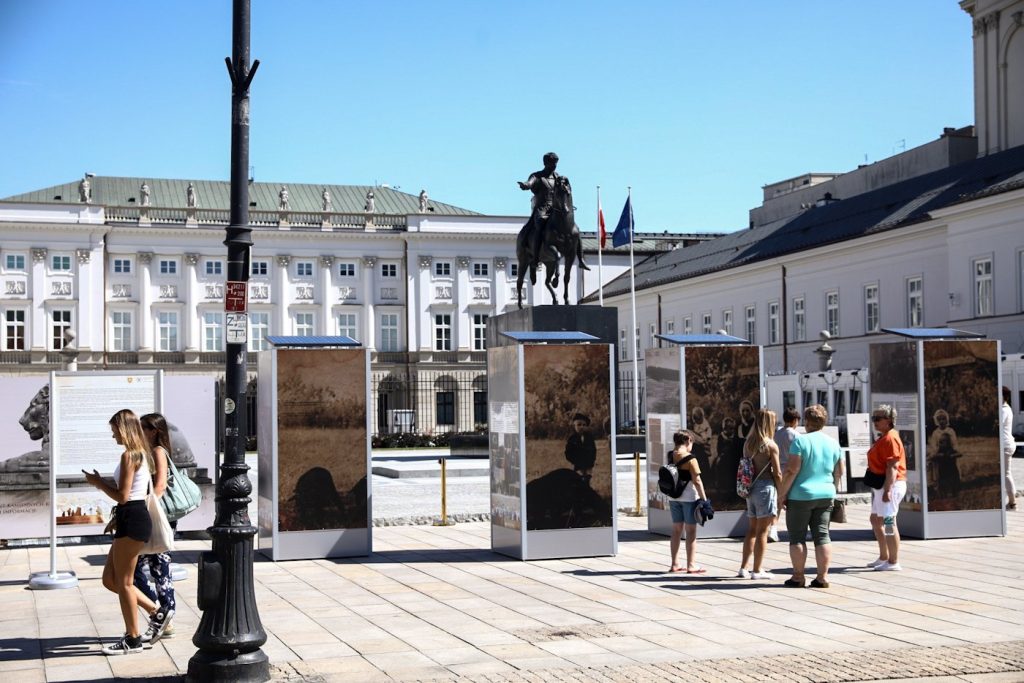

It is worth noting that the Ulmas are an example of holiness in everyday life, a holiness that history has put to the test. It should be known that in Markowa normal and neighborly relations prevailed between Poles and Jews. It is impossible to understand the history of the Ulma family without knowing the history of the people of Markowa.
As we await beatification, let us look at the example of an extraordinary family who achieved sainthood in ordinary life circumstances. It is an inspiration for modern marriages and families. Józef and Wiktoria Ulma show, above all, the beauty and value of marriage based on Christ, where God's grace is the foundation of everything.
Their love realized in daily life can also motivate them to be open to life and to take responsibility for the education of the younger generation. The heroic attitude of love towards our neighbor should stimulate us to live not so much for our own comfort or the desire to possess, but to live as a gift of ourselves to others.





